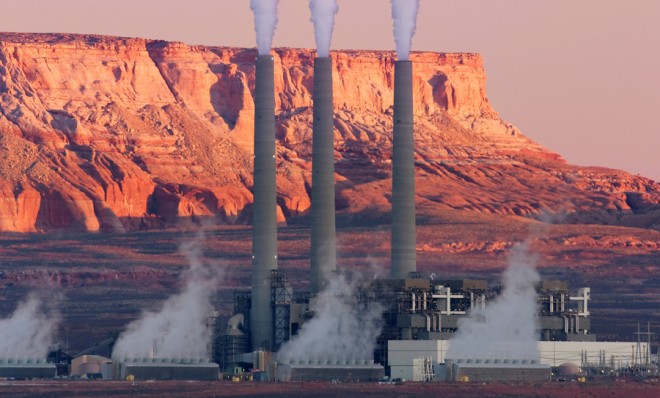EPA's new carbon rules: The beginning of the end for the coal industry?
Or is Obama's "War on Coal" a moot point?

A free daily email with the biggest news stories of the day – and the best features from TheWeek.com
You are now subscribed
Your newsletter sign-up was successful
On Friday, the Environmental Protection Agency presented a new draft of carbon rules that will limit the amount of carbon dioxide new power plants will be allowed to emit. Big coal claims the new carbon rules will effectively "ban" new power plants.
“The president’s Climate Action Plan calls on federal agencies to take steady, sensible, and pragmatic steps to cut the harmful carbon pollution that fuels our changing climate, to prepare our communities for its unavoidable impacts, while continuing to provide affordable and reliable energy for all,” Gina McCarthy, an administrator at the Environmental Protection Agency, said in a speech outlining the new carbon rules.
Specifically, the rules block future coal burning power plants from emitting more than 1,100 pounds of carbon dioxide per megawatt hour — a limit that requires the plants to use carbon capture and storage technologies that suck carbon dioxide out of smokestacks and inject it deep under ground. Carbon dioxide is the world's leading greenhouse gas, and is considered a leading cause of global warming.
The Week
Escape your echo chamber. Get the facts behind the news, plus analysis from multiple perspectives.

Sign up for The Week's Free Newsletters
From our morning news briefing to a weekly Good News Newsletter, get the best of The Week delivered directly to your inbox.
From our morning news briefing to a weekly Good News Newsletter, get the best of The Week delivered directly to your inbox.
Opponents of the carbon rules say requiring that technology will lead to the end of the coal industry. The technology is "so prohibitively expensive in terms of capital costs that no investor would dream of taking the risk," says Christopher Helman in Forbes.
Opponents also say the efficacy of the technology hasn't properly been demonstrated. "EPA has set a dangerous and far-reaching precedent for the broader economy by failing to base environmental standards on reliable technology," Hall Quinn, president and CEO of the National Mining Association said in The Wall Street Journal.
Others say the coal industry is crying wolf. Brad Weiners at Bloomberg Businessweek points out that the carbon rules will only apply to new plants and those currently under construction. "This isn’t about policing the dirtiest of the dirty. It’s about closing a gate behind the dinosaurs," he says.
"When new mercury emissions limits were imposed in the spring, there were similar doomsday declarations," he writes. "The lights will go out! Rates will soar! Obama is coming for your light bulbs! Nothing of the sort has happened."
A free daily email with the biggest news stories of the day – and the best features from TheWeek.com
And it probably won't this time either, say supporters. The New York Times:
E.P.A. officials argue that the carbon capture technology has been used in several locations and that a review of the industry over the past year proves that owners of new coal-fired power plants can meet the new standards as required by the act. [The New York Times]
“These rules are reasonable,” Senator Edward J. Markey (D-Mass) said in the Times. “They are feasible. And they should soon be expanded to include standards for existing power plants.”
The irony of it all: At the end of the day, whether or not the EPA's new set of carbon rules will "ban" new coal plants might be a moot point. The U.S.'s booming natural gas industry is doing a lot more to regulate coal than the EPA possibly could. Brad Plumer explains this on The Washington Post's Wonkblog:
It's entirely possible that no coal power plants of any type will get built for years, regardless of what the EPA does Friday...
Roughly speaking, natural gas prices needs to rise above $7 per million BTU for new coal plants to be competitive. But the U.S. Energy Information Administration projects that natural gas prices will stay under $6 per million BTU between now and 2030.
Carmel Lobello is the business editor at TheWeek.com. Previously, she was an editor at DeathandTaxesMag.com.
-
 Colbert, CBS spar over FCC and Talarico interview
Colbert, CBS spar over FCC and Talarico interviewSpeed Read The late night host said CBS pulled his interview with Democratic Texas state representative James Talarico over new FCC rules about political interviews
-
 The Week contest: AI bellyaching
The Week contest: AI bellyachingPuzzles and Quizzes
-
 Political cartoons for February 18
Political cartoons for February 18Cartoons Wednesday’s political cartoons include the DOW, human replacement, and more